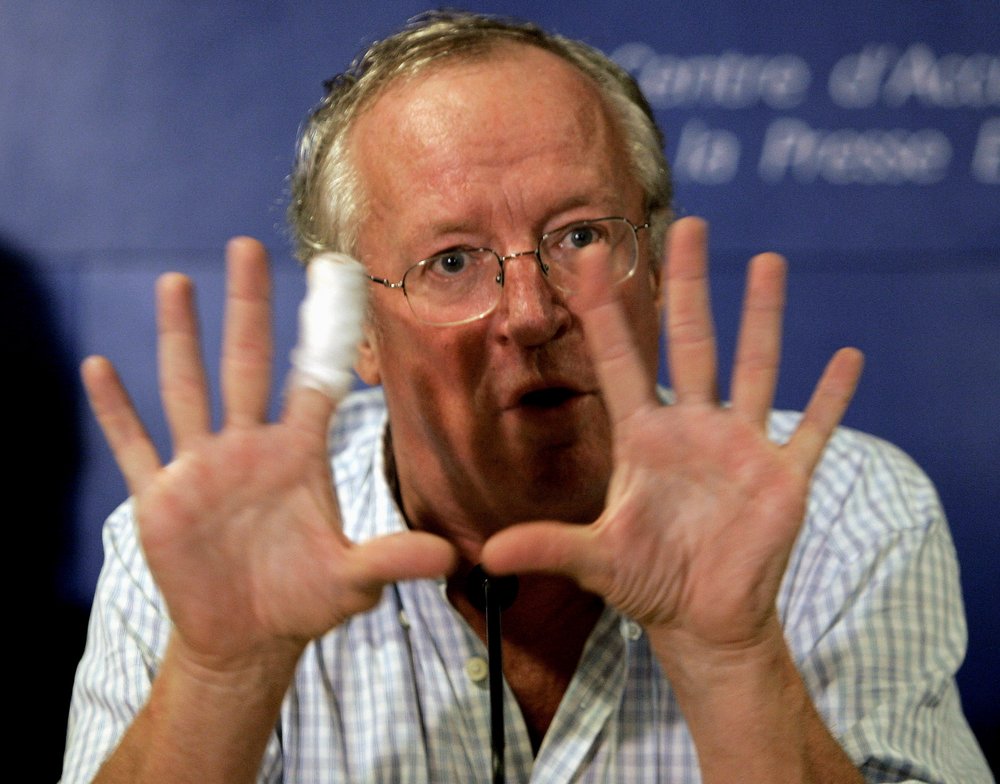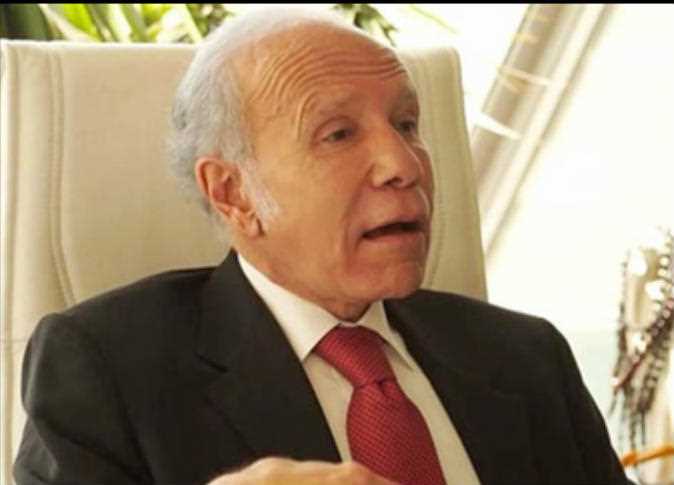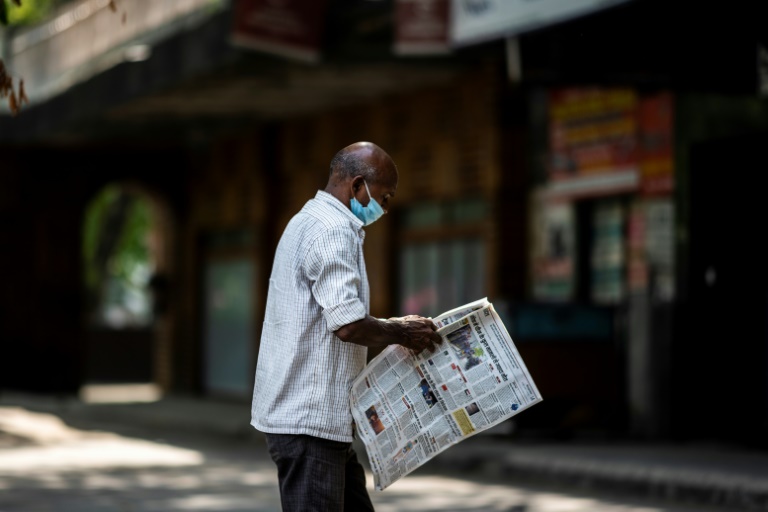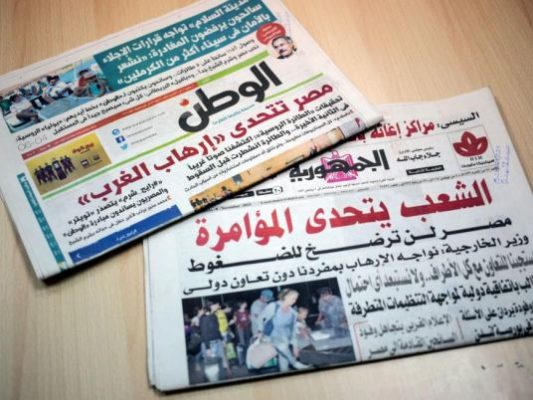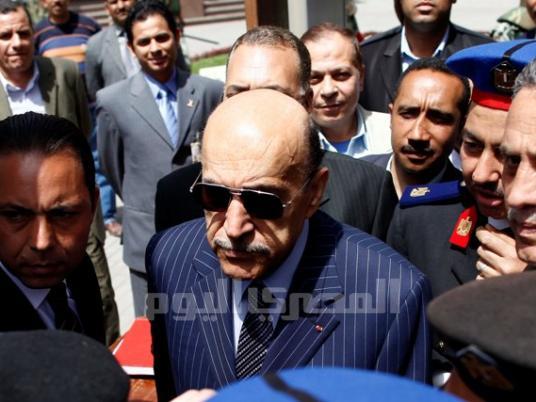
Sunday’s papers focus on how the tension continues to escalate for the presidential election slated to take place on 23 and 24 May.
State-run newspaper Al-Akhbar publishes the names of the 10 presidential hopefuls who the Presidential Elections Commission excluded from the race late Saturday for failing to fulfill the required conditions for running.
Those excluded include some prominent figures who have lately provoked heated debates over their validity to run for Egypt’s top office, including former vice president and intelligence chief Omar Suleiman, Salafi preacher Hazem Salah Abu Ismail, Muslim Brotherhood leader Khairat al-Shater, lawyer Mortada Mansour and Ghad al-Thawra Party head Ayman Nour.
In response to the unexpected announcement on the disqualified candidates, Freedom and Justice newspaper, the mouthpiece of the Muslim Brotherhood’s political party of the same name, quotes Shater in its top headline sharply criticizing the decision and describing it as a “conspiracy” to allow remnants of the old regime to win the race.
In a conference held in the lower-class neighborhood of Mataria, Shater emphasized that though he and Abu Ismail are struck off the electoral roll, they “will continue to strive in the legal battle … so the old regime does not steal the revolution.”
The Presidential Elections Commission’s statement said the disqualified candidates have the right to appeal the decision within 48 hours.
Daily independent Al-Shorouk states that Abu Ismail released a press statement that insists the documents issued by the US, which allegedly prove that his mother, Nawal Abdel Aziz Nour, was an American citizen, are forged and do not have official signatures or stapes.
The accusations of the dual nationality of Abu Ismail’s mother threaten his chance to enter the presidential race, because a law issued after former President Hosni Mubarak’s ouster states that presidential candidates must have Egyptian nationality only, and their parents and spouses should not hold any other citizenship other than Egyptian.
Al-Wafd, a partisan daily, leads with the headline about the army protecting the presidential commission, along with a photo of military forces standing in front of its headquarters to guard the gates.
It reports that heavy security measures were taken as more than 3,000 of Abu Ismail’s supporters blocked Arouba Street for hours in protest of barring the Salafi candidate from running.
Last Friday, according to the report, Abu Ismail’s loyalists tried to storm the headquarters building, forcing the members of the committee to evacuate the office and suspend their work.
The news of declaring Mortada Mansour as fugitive is another story making headlines in Thursday’s papers.
Al-Shorouk publishes a story that military forces, which surrounded Mansour’s home Saturday morning, failed to arrest him for his absence in the last three court hearings of the so-called “Battle of the Camel” case.
Mansour — along with his son and his nephew, who managed to flee — were accused of being involved in conspiring to kill protesters on 2 February during the uprising last year.
Reporting on the same news, independent paper Al-Dostour quotes a security source as saying that Mansour is hiding in the apartment of his daughter’s husband,counselor Hesham al-Rafaei, whose legal immunity prohibits police from breaking into his home.
After the withdrawal of a considerable number of Constituent Assembly members, including representatives from Al-Azhar, the Coptic Orthodox Church and the Supreme Constitutional Court, the Muslim Brotherhood and ultraconservative Nour Party are considering whether to cut down the participation of MPs to 40 percent.
Independent Youm7 writes that Islamist movements are planning to meet with political parties in the upcoming days to reach common ground on appointing new members who represent all segments of society.
During the past few weeks, political forces have called for dissolving the whole body and restructuring it after coming out empty-handed from negotiations with Islamists.
Egypt’s papers:
Al-Ahram: Daily, state-run, largest distribution in Egypt
Al-Akhbar: Daily, state-run, second to Al-Ahram in institutional size
Al-Gomhurriya: Daily, state-run
Rose al-Youssef: Daily, state-run
Al-Dostour: Daily, privately owned
Al-Shorouk: Daily, privately owned
Al-Wafd: Daily, published by the liberal Wafd Party
Youm7: Daily, privately owned
Al-Tahrir: Daily, privately owned
Freedom and Justice: Daily, published by the Muslim Brotherhood's Freedom and Justice Party
Sawt al-Umma: Weekly, privately owned
Al-Arabi: Weekly, published by the Nasserist Party
Al-Nour: Official paper of the Salafi Nour Party

